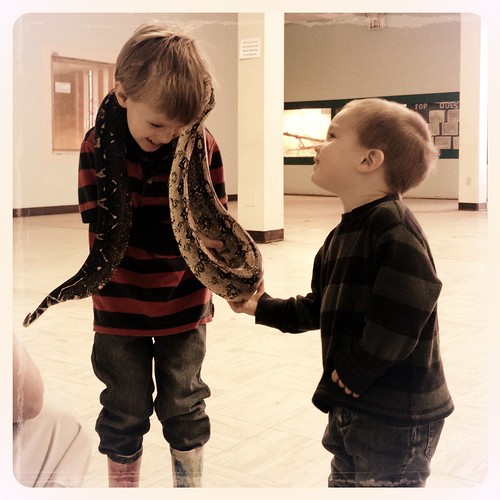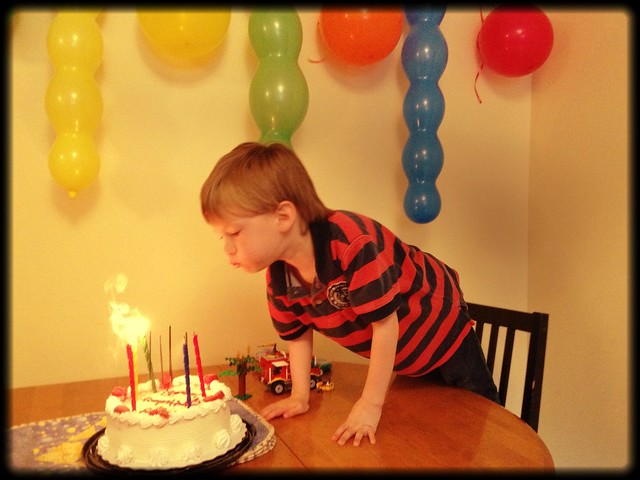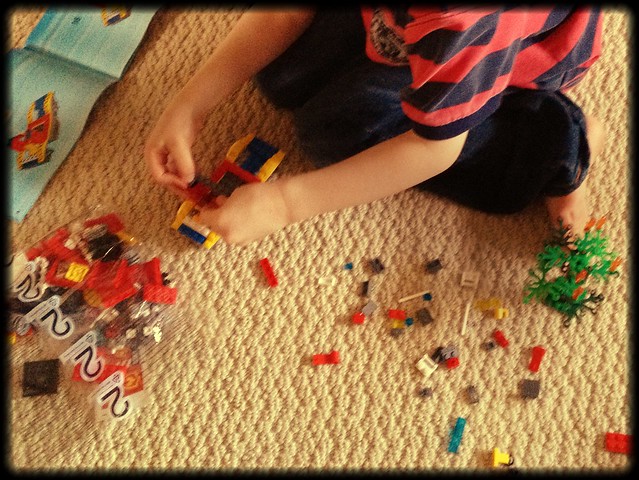Introduction
Once a parent has made the choice to raise their children in an Attachment Parenting manner, they often find themselves the target of a great deal of criticism and anti-attachment advice. Family, friends, and acquaintances are often vocal in sharing their concerns with an attachment-oriented approach to parenting. This criticism can shake a parent's confidence and leave them wondering if such warnings and advice are valid.
It can be challenging to choose a different path than that of the predominant parenting culture. Fortunately, there are steps the AP parent can take to both reduce the amount of criticism received and reinforce their own convictions on the matter.
Responding to criticism
Project confidence
People are far less likely to jump in and offer advice or criticism if you look like you know exactly what you are doing. There is no need to seek approval, permission, or validation when it comes to your parenting choices. Simply carry on with what needs to be done. Hungry baby? Feed him in whatever manner you choose. Tantruming toddler? Pick her up and find a quiet private place where you can help her regain her composure. No big deal. Just do what needs to be done, and do it with unapologetic confidence. Keep in mind that proceeding calmly is reassuring for the child as well.
Recognize their motives
Most people who offer warnings, advice, and criticism truly have the target parent's best interests at heart. They sincerely believe what they are saying and authentically want to help. Being aware of these positive motives can take some of the sting out of their words and make it easier for the parent to calmly proceed.
Acknowledge and disengage
With those positive motives in mind, acknowledge the shared advice without feeling the need to engage. In other words, don't try to change the world; change the subject instead. You are not obligated to enter into a discussion simply because someone shares their advice, criticism, or warnings.
"Thanks for the advice, I'll keep that in mind!" followed by a change in topic often works to end an unhelpful conversation. Humor can be useful here as well: "Oh, you know how those recommendations are always changing!" You may choose to discuss the reasons behind your parenting choices with other parents who sincerely want to hear what you have to say (even if they ultimately disagree); you may also choose not to engage in a fruitless discussion with someone whose sole motivation is to convince you to change your mind. Smile, nod, and change the subject.
Similarly, "he's sleeping well!" is a perfectly acceptable answer when a more detailed answer ("he wakes up every three hours to nurse, as expected for his age") will only invite criticism. Be aware of who you are entering into such a conversation with. It is wise to share your parenting challenges only with those who you know are supportive of an attachment parenting/gentle discipline lifestyle. Just as you wouldn't discuss homeschooling challenges with someone who was vocally against homeschooling, don't discuss parenting challenges with those who are vocally critical of an attachment approach to parenting. Don't invite criticism.
This doesn't mean you have to pretend everything is perfect. A simple "we've had our challenges, but we're handling them" can be more than sufficient. This form of discretion is simply a wise boundary, not a fake projection of perfection. Use your best judgement to determine when entering into a dialogue with someone will resolve itself peacefully or only create more conflict.
Enforce boundaries
Unfortunately, there are those who will persist in the conversation despite attempts to politely disengage. For those who can't leave the topic alone, enforce strong boundaries. "I will not discuss this further." Repeat until they accept that the topic is not open to further discussion. Leave if possible/necessary.
Turn the conversation around
Shift the focus off of you and back to them. This allows them to offer their experiences in a non-confrontational manner. "Interesting! What was it like for you when your baby weaned?"
Lead by example
Actions speak louder than words. Rather than engaging in a discussion, step back and let time demonstrate the fruit of this style of parenting. In the meantime, the same gentle parenting techniques can be used on those who persist in offering criticism: listen to their words, reflect their feelings, acknowledge their underlying motives, and firmly yet gently enforce your boundaries.
Share your reasons and resources
Of course, you may always choose to enter into the discussion rather than politely disengage. When doing so, there are three techniques that can help to make the experience a positive one for both parties:
- Empathize: "It sounds to me that your concern is _____. It means a lot to me that you care so much about your niece."
- Educate: "Current recommendations state..." or "If you are interested, I would be happy to share with you some resources that we found helpful when making our decision."
- Express enthusiasm: "I'm really excited that our nursing relationship has continued this long. It's been a wonderful bonding opportunity for both of us, and it has been an excellent tool in helping us through these turbulent toddler years!"
Strengthening resolve
In addition to knowing how to respond to criticism, it is helpful for the AP parent to have an AP-oriented support network in place as well as an understanding of why they have chosen this path. Both knowledge and support will help to prevent discouragement from taking root.
Build support networks
It can be discouraging to spend time with other parents who are vocally critical of an overall AP approach to child rearing. It can also be difficult to maintain a positive outlook and attachment-oriented focus after spending time with those who parent in a punitive and authoritarian manner. As such, it is helpful for the AP parent to also find supportive families that affirm an AP lifestyle.
While no two families are likely to agree on the details of every parenting matter, connecting with those overall supportive families can leave an AP parent feeling refreshed and re-energized. A supportive network can also provide the parent with additional tools and relevant brainstorming when challenges arise.
For some, that community may be found in person. Attachment Parenting playgroups or La Leche League meetings are good starting places to find these connections. For others, however, depending on the community they live in, that group may exist mainly online during some seasons of their life. While face-to-face support is generally preferable, a solid online AP support network can be an excellent source of resources and encouragement either in addition to or temporarily in place of that in-person community.
Reinforce beliefs through research
Knowledge is another source of affirmation and encouragement. When you are confident that healthy attachment will lead to healthy independence, it matters less when others warn that independence must be forced from the beginning. Scientific resources routinely reaffirm an attachment-oriented approach to child rearing. Spend time reading this research in order to bolster the underlying reasons for your parenting choices.
The more knowledge and tools a parent has, the better equipped they will be to handle challenges and criticism, the more confident they will feel in their choices, and the easier they will be able to say "this is what we do" instead of "that is what we don't do". In addition, solid science-based information is useful to have on hand when choosing to enter into a parenting discussion.
Recognize the roots of criticism
Anti-attachment warnings are often both rooted in fear and create fear. Such admonitions may include warnings against responding to a baby's cries, bed-sharing, full-term nursing, gentle discipline, and more:
- "Just leave him to cry. He needs to learn he's not the center of the world."
- "If you let her into your bed now, you'll never get her out."
- "He needs to learn to be independent, or he'll be living in your basement when he's thirty."
- "That 'gentle discipline' stuff will create a monster who always expects to get her way."
- "If he's old enough to ask for it, he's too old to have it. You'll turn him into a pervert if you keep nursing him."
Recognizing these as fear-based statements can reaffirm the AP parent's stance. Fear-based parenting is restrictive, reactive, and ultimately not rooted in reality. Because fear focuses on control and prevention, it actually restricts a healthy, age-appropriate independence as the child grows. Conversely, Attachment Parenting focuses on healthy attachment, mutually-trusting relationships, and responding to the needs of the individual child. The security and reassurance provided allows the child to grow into an emotionally security, empathetic, confident, and independent individual.
Give it time
You will see the fruit of your choices in time. As your children grow, it becomes easier to let the comments roll off, and the comments become fewer as others see the results as well. Your own experiences will begin to demonstrate the lack of truth in the earlier anti-attachment warnings and criticism. You can also look to those who have teenagers and adult children raised in an Attachment Parenting manner and see the positive outcomes there as well.
When warnings are valid
We have been focusing on criticism and anti-attachment advice that stems solely from an overarching disagreement with Attachment Parenting or gentle discipline in general. It is always wise, however, to consider when a specific warning may be valid.
While AP affirms balance and being aware of the individual child's needs, there can be times when a parent becomes so focused on the specifics that they miss the bigger picture. An overemphasis on breastfeeding, for example, can be to the detriment of the infant who authentically needs supplementation in order to prevent failure to thrive. Other parents, as their child grows, may confuse AP/GD with permissiveness. In such cases, concerned family and friends may see, for example, an infant displaying signs of failure to thrive or a preschooler seeking the safety of boundaries and offer valid warnings to the parent.
As with all else, use your best judgement to determine whether the warning has basis in reality or is simply a fear-based reaction against AP/GD in general. The following questions may be helpful in making this judgement:
- "Is my child healthy and thriving?"
- "Is my child generally happy?"
- "Is there a concern I have been ignoring because I don't want to or don't know how to handle it?"
- "Has my child entered a new stage where an adjustment is needed to a particular aspect of my parenting?"
You know your child best. If none of these questions are a concern, the warning is mostly likely a general warning against AP/GD rather than a valid warning about your child's health, development, or safety.
Summary
The parent who chooses an Attachment Parenting method of child-rearing is often the target of much criticism, warnings, and anti-attachment advice. While such criticism may initially shake a parent's confidence, there are steps the parent can take both to respond in a positive manner and to strengthen their own resolve on the subject.
To reduce the likelihood of receiving unwanted advice, project confidence while unapologetically doing what needs to be done. Lead by example; in the meantime, be discerning when it comes to discussing parenting challenges. When criticism or advice is offered, there is no obligation to enter into the discussion. To avoid engaging, acknowledge the advice and change the subject or shift the focus back to the other party by asking them about their experiences. Gently but firmly enforce boundaries when polite attempts to disengage are ignored. When choosing to enter into a parenting discussion, empathize, educate, and express contentment with the choices you have made.
To strengthen resolve, build a supportive network of like-minded families. While it is preferential to have this support in-person, online support networks can be an excellent supplement or temporary replacement. Support networks are sources of information, encouragement, and relevant brainstorming when challenges arise. Knowledge is another source of affirmation and encouragement for the AP parent, allowing them to better handle criticism, tackle parenting challenges, and share science-based information. Finally, recognizing the fear-based roots of criticism and how that differs from Attachment Parenting can further strengthen the parent's resolve.
While most of the warnings and criticism received will stem from a misunderstanding of and disagreement with Attachment Parenting, it is wise for the parent to be aware of times when the warnings offered may be valid. This requires both a willingness to acknowledge areas of weakness and a thorough understanding of the child in question.
Ultimately, time and experience will demonstrate the lack of truth in anti-attachment warnings. In the meantime, maintain positive responses, strengthen foundational knowledge, and continue to build strong networks of supportive families.
Recommended Reading:
Nonviolent Communication: A Language of Life by Marshall B. Rosenberg, Ph.D.
Responding to Criticism
Handling Criticism about Breastfeeding
Handling Attachment Parenting Criticism
Recommended Support Resources:
La Leche League Groups (Facebook page)
Natural Parents Network (Facebook page)
Gentle Christian Mothers Community (Facebook page)
Positive Parenting: Toddlers and Beyond (Facebook page and Reader Advice)

























